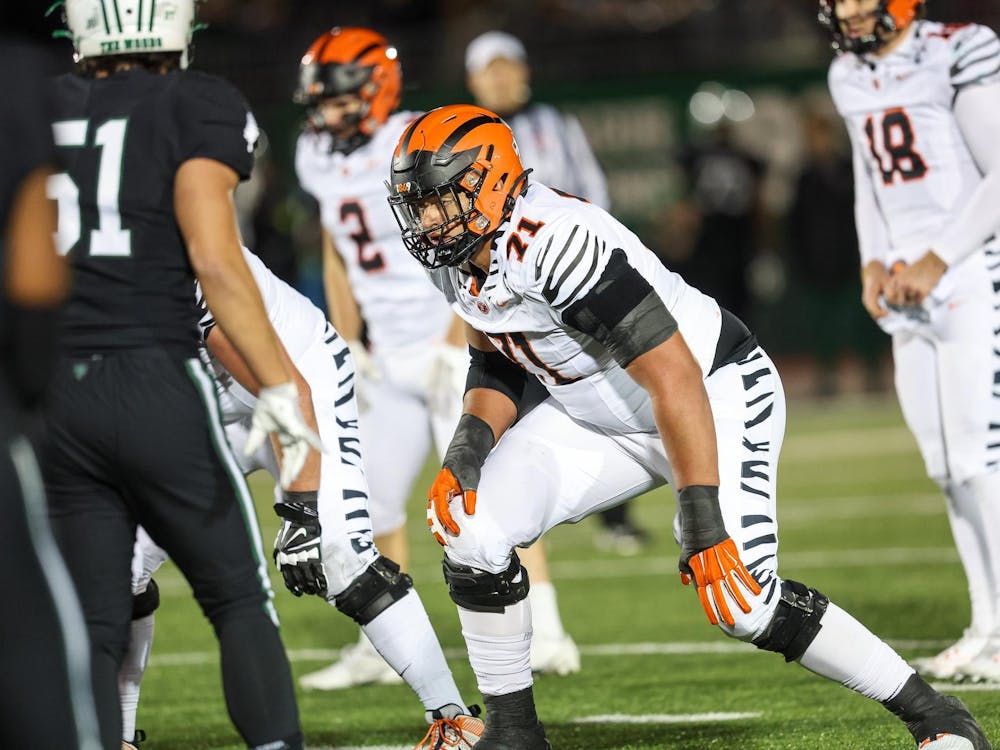Maybe you’ve heard: Princeton will not be hosting any NCAA championship events this year. Neither will the entire state of New Jersey. This is because the NCAA has once again mounted the highest, flimsiest soapbox in all of institutionalized athletics to tell us a thing or two about “integrity.”
Up until today, betting on sports in any capacity has been illegal in all but four states: Oregon, Delaware, Montana and Nevada. That’s due to the Professional and Amateur Sports Protection Act, a 1992 law nicknamed the “Bradley Act” on account of its sponsor in Congress, whose name should ring a bell: Senator Bill Bradley ’65. Bradley traces his personal distaste for sports gambling to a particular game in Madison Square Garden as a member of the Knicks, when an especially meaningless basket late in the game still drew cheers from the crowd by covering the point spread.
Fast forward a couple decades, to when the citizens of New Jersey voted “yes” on a referendum that asked to legalize sports betting in casinos and horse-racing tracks. In early 2012, Governor Chris Christie signed the law, which stipulated the state could begin issuing sports betting licenses in January 2013. Soon thereafter, the NCAA, in conjunction with the four major American sports leagues, sued in federal court to have the law repealed. And about a month ago, the NCAA decided to forget about the courts and take matters into its own hands, moving the championships that were already scheduled to take place in New Jersey and barring any that might potentially take place in the future.
It would be a mistake to make this primarily a 10th Amendment issue, or a moral or political issue or to focus on any aspect of this story that is not the NCAA’s retributive and embarrassing hissy fit. Here is a partial list of the championships that have to be moved, for effect: a swimming and diving event in Piscataway, the Division III Wrestling Championships East Regional in Ewing, the Division II and III Women’s Lacrosse Championships in Montclair, and the Division III Men’s Volleyball Championship in Hoboken, all absolute hotbeds of sports betting activity. This is not even to mention colleges like Princeton and Rutgers, some of whose teams (such as the Tigers’ field hockey team, to name one) enjoyed incredibly high-quality seasons, seemed poised to earn a home playoff game and nonetheless did not get to play on their own field in front of their friends and peers. Which in turn is not even to mention that some such games will take place before Jan. 9, when the offending law goes into effect.
The NCAA says it made the move because “maintaining the integrity of sports and protecting student-athlete well-being are at the bedrock of the NCAA’s mission,” an official statement that’s almost artistic in its brazen insincerity. To pretend that any governing organization anywhere is looking out for the well-being of student-athletes is, we can all pretty much acknowledge at this point, a joke. What the NCAA wants to “protect” is the monopoly on the semi-illegal system it set up: God forbid anyone make a buck off the multibillion dollar industry that is college sports beside the well-meaning folks at the top. They know what’s good for the kids.
Don’t blame New Jersey — the law makes sense for them, and it’s one that will in all likelihood pass. And don’t think the NCAA is taking a legitimate ideological stand — the second it does pass, it will be working on finding a way to profit off it.
Part of what makes college sports so great is the sense of community it can sometimes foster. Those who get decked out for volleyball and water polo, who make it out to track and basketball and soccer, they do it sometimes because they love the sport and sometimes because those are their friends out there, doing something excellently. A guy who lays 50 bucks down on the Jets in Atlantic City instead of using a bookie or going online doesn’t threaten that, though somehow we’re being asked to believe it does, and somehow we’re going to miss out on the highest levels of collegiate competitive sports because of it.







